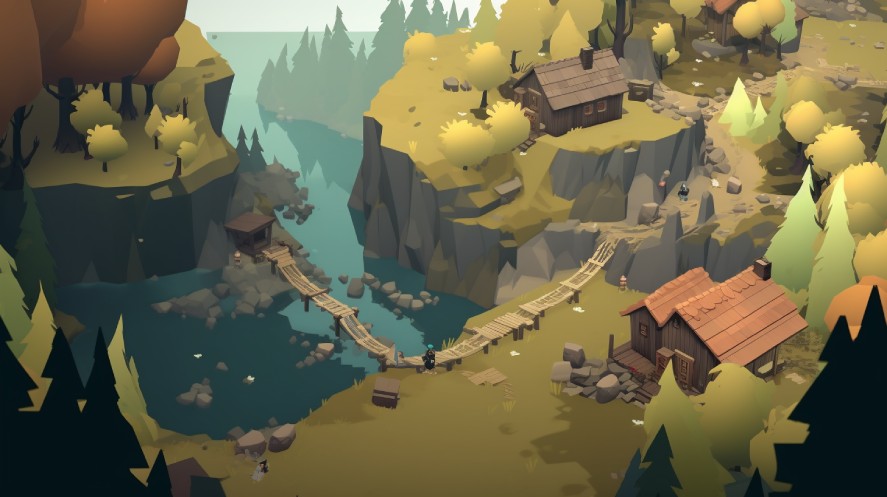Should indie game developers work with a game publisher?
The world of indie game development is a thriving and competitive space, with talented developers creating unique and innovative games. However, navigating the industry can be challenging, and that’s where game publishers come in.
In this article, we will explore the importance of indie game developers working with game publishers, the benefits they bring, and the considerations developers should keep in mind!
Understanding Indie Game Development
The initial stage of indie game development focuses on crafting compelling concepts and innovative designs. It involves a fascinating and creative process that brings unique games to life.

Let’s delve into the journey of indie developers as they conceptualize, design, and refine their games!
1. Concept and Design
Developing an indie game starts with a compelling concept and meticulous design.
Indie game developers immerse themselves in the creative process, crafting engaging gameplay mechanics, captivating storylines, and stunning visuals.
2. Programming and Development
Once the game concept is solidified, indie developers put their programming skills to work. They write code, create game assets, and build the game’s mechanics, ensuring a seamless and immersive player experience.
3. Testing and Refinement
Testing and refinement play a crucial role in indie game development.
Developers gather feedback from playtesters, identify and fix bugs, and fine-tune the game mechanics to create a polished and enjoyable gaming experience.
The Role of a Game Publisher
Game publishers play a crucial role in the gaming ecosystem, supporting developers and driving the success of their games. Understanding the role and types of publishers is essential for indie developers considering a partnership.
A game publisher is a company that oversees the production, marketing, and distribution of a game. They provide financial support, marketing expertise, and industry connections to help developers bring their games to a wider audience.
If you want to learn more about the game publisher role, check out our “What Does a Game Publisher Do?” article for more details.
Types of Publisher – Traditional vs Indie Game Publishers
There are two types of publishers: traditional publishers, who work with established studios and AAA titles, and indie game publishers, who focus on supporting independent developers and their unique projects.

The relationship between a publisher and an indie developer is a partnership built on trust and collaboration. Publishers offer guidance, resources, and support throughout the game’s development journey, helping developers navigate the complexities of the industry.
Reasons Indie Developers Should Consider Working With a Publisher
Collaborating with a publisher offers numerous benefits and opportunities for indie developers.
Let’s explore why partnering with a publisher can be advantageous.
1. Financial Support
So, how much does it cost to make an indie game?
It depends! You can expect a small amount from $5,000 and up to $30,000 for a budgeting game. Some indie games with a huge amount of content can cost more. And that’s why financial support is the top reason you should work with a game publisher.
Working with a publisher provides access to funding, allowing developers to allocate resources for high-quality art, sound, marketing, and other crucial aspects of game development.

To overcome these constraints, indie developers must carefully plan and manage their indie game budgets, exploring cost-effective solutions without compromising the vision and integrity of their games.
2. Marketing and Promotion
Indie developers typically have limited marketing budgets and face challenges in reaching their target audience effectively. And strategic indie game advertising and promotion play a crucial role in addressing this.
Game publishers can do it all to increase the game’s exposure and attract a larger audience by leveraging social media platforms, creating engaging trailers, reaching out to gaming influencers, and creating targeted video game marketing campaigns.
3. Distribution and Market Access
Publishers have established game distribution channels, ensuring indie games reach a broader audience. They have partnerships with digital storefronts, console manufacturers, and other platforms, allowing games to be readily available to players worldwide.
This wider market access opens doors for greater recognition and sales potential.
4. Experience and Expertise
Indie developers often lack the industry experience and knowledge necessary to navigate the complex landscape of game development.
Publishers bring valuable industry expertise, offering insights into game design, monetization strategies, and market trends. Their guidance enhances the game’s overall quality and maximizes its chances of success.
Possible Disadvantages of Working With a Publisher
While there are significant advantages to partnering with a publisher, it is essential for indie developers to be aware of potential drawbacks and navigate them effectively.

1. Loss of Creative Control
Working with a publisher may involve compromising certain creative decisions.
Publishers have their business goals and target markets, which can influence the game’s design and direction. Developers must find a balance between staying true to their vision and accommodating the publisher’s input.
2. Profit-sharing
Publisher contracts typically involve profit-sharing arrangements.
Developers should carefully review the terms to ensure a fair distribution of revenues. It is important to understand the shared gross and net income and the financial implications for the developer.
3. Risk of Publisher Failure
There is always a risk associated with partnering with a publisher. Developers should research potential publishers thoroughly and assess their financial stability and track record.
In case a publisher fails to fulfill its obligations or goes bankrupt, it could have significant consequences for the developer and the game’s future.
4. Dependence on the Publisher
Relying heavily on a publisher for funding, marketing, and distribution means developers become dependent on their support. This dependence can limit the developer’s autonomy and flexibility in decision-making.
Developers should carefully consider the level of dependence they are comfortable with before entering into a partnership.
Case Studies of Indie Game Developer-Publisher Collaborations
There have been numerous success stories where indie developers and publishers have collaborated to create remarkable games.
For example, the partnership between Playdead, the developer of “Limbo” and “Inside,” and publisher Double Eleven led to widespread critical acclaim and commercial success.
While collaborations can be fruitful, some instances highlight the challenges that can arise. The case of “No Man’s Sky,” developed by Hello Games, faced significant backlash due to communication issues and unmet expectations.
This demonstrates the importance of establishing clear communication and shared goals from the outset.
Tips for Indie Developers When Choosing a Publisher
Finding the right publisher is crucial for indie developers aiming for a successful partnership.

Here are some essential tips to consider when selecting a publisher and learning more on how to publish indie game.
What to Look For in a Publisher
Indie developers should consider factors such as the publisher’s reputation, experience in the industry, track record with indie games, and the level of creative control they offer.
Finding a publisher that aligns with the developer’s vision and goals is crucial.
How to Negotiate a Beneficial Contract
Developers should negotiate a contract that outlines the responsibilities, financial arrangements, and intellectual property rights when entering into a partnership.
Seeking legal counsel and understanding the terms thoroughly are essential to ensure a fair and mutually beneficial agreement.
Balance Between Independence and Collaboration
While working with a publisher offers numerous advantages, indie developers should strive to maintain their creative independence.
Finding a publisher who respects the developer’s artistic vision and supports their unique creative expression is essential.
Conclusion
Collaborating with a game publisher can provide indie developers with invaluable support, resources, and expertise to enhance their chances of success.
While there are potential drawbacks, the benefits of working with a publisher, such as financial support, marketing reach, and industry knowledge, make it a compelling option for indie game developers.
By carefully considering the pros and cons and choosing the right publisher, indie developers can navigate the gaming industry more effectively and achieve their game development aspirations.
Loading survey...

